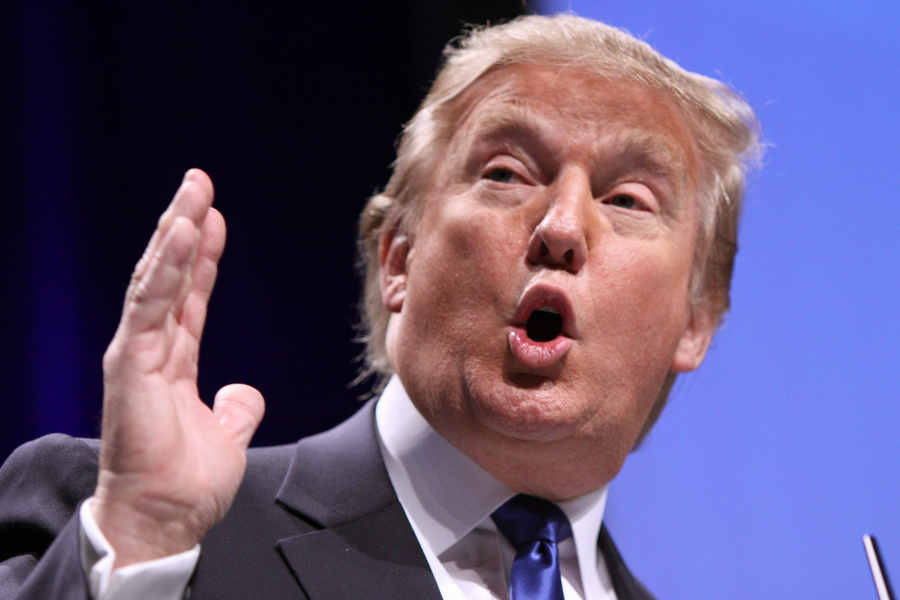
 President Donald Trump announced on Dec. 6 that the U.S. would officially recognize Jerusalem as Israel’s capital and relocate its embassy to reflect the change in policy. Although hardly shocking — indeed, the last several American presidents made campaign statements supporting Israel’s right to choose its capital —Trump’s speech led to swift condemnation throughout the Arab world, jokes by the late-night television circuit and criticism from many in established media circles.
President Donald Trump announced on Dec. 6 that the U.S. would officially recognize Jerusalem as Israel’s capital and relocate its embassy to reflect the change in policy. Although hardly shocking — indeed, the last several American presidents made campaign statements supporting Israel’s right to choose its capital —Trump’s speech led to swift condemnation throughout the Arab world, jokes by the late-night television circuit and criticism from many in established media circles.
As with any policy decision involving Israel, controversy is expected. And, as with any big gambit announced by the Trump administration, scrutiny is definitely warranted. The foundation of any liberal democracy relies on a free press’s ability to challenge those in power, and the response from the American media — comedic or otherwise — certainly fits this all-important model of accountability.
But there’s a disturbing lack of balance regarding this specific scrutiny of Trump. Vox and Slate are some big-name culprits, using the speech as a platform for quietly delineating their hostility for Trump (a quick Google search for “Slate Jerusalem” or “Vox Jerusalem” will provide ample evidence).
It’s essential to look at other media channels, too. Late-night comedy hosts lampooned the slurred ending of Trump’s address on Jerusalem rather than pick apart the words themselves. As I suspect, the comedy over Trump’s muddled pronunciation is due to a lack of material available for criticism. This late-night hilarity was also based on the speech’s potential global effects rather than on its actual language —which has been ignored by many analysts.
The headlines belie how Trump’s speech content itself was nuanced and starkly resistant to his inflammatory history. When read in its entirety (not heard, due to a risk of gut-wrenching laughter induced by the aforementioned slurring), the speech is tough to criticize. It delicately urges preserving the status quo of some of the holiest sites in the Abrahamic traditions. The speech is laudable for its rhetoric of unity — it calls for “Jewish and Christian and Muslim” leaders to reach a “lasting peace.”
Yet the surprisingly subdued — dare we say, presidential? — nature of Trump’s speech has been glossed over for punchier headlines. Mainstream journalism is missing an opportunity to combat the barbed “liberal media” attacks and burnish its credentials as a trustworthy source of information.
To maintain this credibility, journalists and other media personalities should recognize when a decision made by Trump actually follows a line set by his predecessors: a thoughtful, considerate speech or statement that plays to conciliation instead of combative rhetoric. Trump rarely demonstrates this. But when he does — like his decision to recognize Jerusalem as the Israeli capital, for example — members of the media have shown their bias, to the detriment of public-media relations as a whole.
We can (and perhaps should) disagree about the bare-bones policy Trump is advancing with his Jerusalem decision, but there’s no denying how his speech is surprisingly sophisticated and thoughtfully nuanced in its approach. Trump doesn’t try to alienate Muslims in the Middle East, instead calling for peace and invoking the humanity inherent in people of all faiths as a bridge to solving enduring conflicts. Trump doesn’t say that Jerusalem is the undivided capital of Israel, thus avoiding the touchy subject of Israel’s annexation of East Jerusalem in 1967 and leaving room for a potential bipartite solution with the Palestinians down the road. The speech appears presidential in scope and assertive in effect. It has the hallmarks of good American leadership.
The media needs to recognize the rare occasions when Trump sounds like an actual president — and not like the firebrand he so often is — so that the public’s distrust of journalism doesn’t slip further into the deep hole it’s already in. We must give credit where it’s due. This is the only way to ensure that fairness and balance are maintained in the name of great journalists and newspapers alike. We have a job to do.
Written by: Nick Irvin — ntirvin@ucdavis.edu
Disclaimer: The views and opinions expressed by individual columnists belong to the columnists alone and do not necessarily indicate the views and opinions held by The California Aggie.



